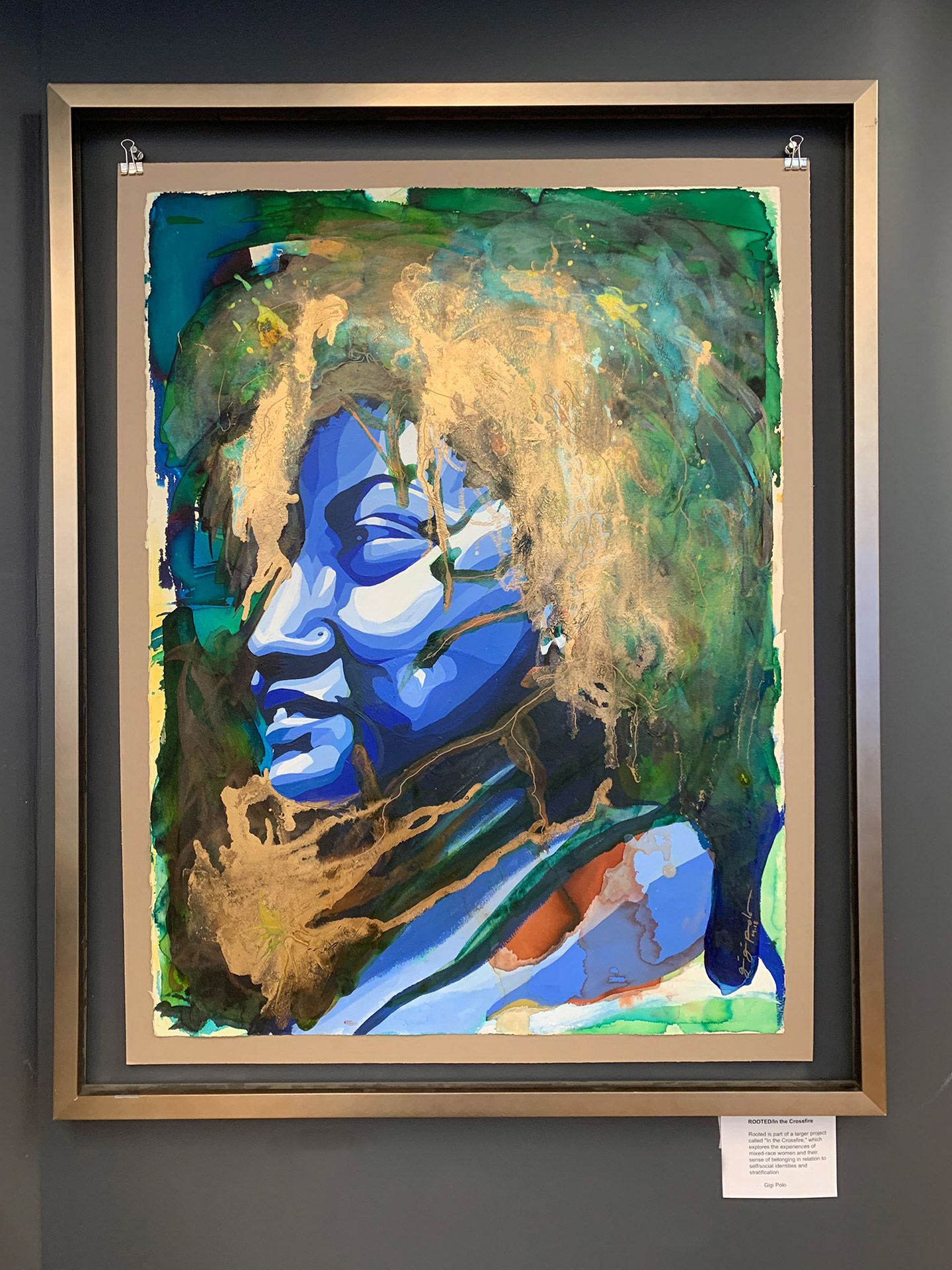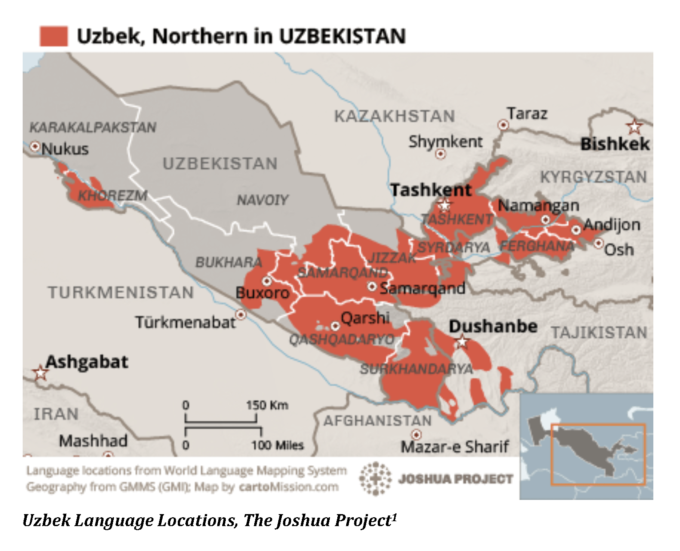My informant—who for the purpose of this interview I will call Rossy—is a 33-year-old female, born and raised in the Dominican Republic (DR). (I have noted Rossy’s comments in quoted bold- italics).
Rossy attended Art School between 2000-2003; she was my roommate. On a personal level, Rossy has a very candid spirit: she believes in the connectivity of the world, causality, and the power of positivity, a philosophy possibly instilled in her by an agnostic yet spiritual family and, later on, grounded by her older brother’s influence, who grew up to become a Chinese Doctor and now a Chinese monk. In contrast, Rossy likes order, structure, and control, and all things which give her a sense of stability. Her mother gave her a love for books and learning, and her father a passion for adventure and a great appreciation for Dominican culture. Rossy has an inquisitive personality—with the curiosity of a child—and the discipline and drive of a soldier; these attributes have made her a self-taught learner with many interests, and have helped her built a toolkit full of skills that she keeps filling up.
Her journey to learn English started implicitly at an early age, in her household. She was raised by a bilingual mother who was a high ranked executive of an international corporation in Dominican Republic; as she recounted during our conversation: “Well, I remember when I was little, listening to my mom sing all these songs from The Beatles, Michael Jackson, and all… and I wanted to understand what the lyrics said…I learned English implicitly.” In this context, she was exposed to English in a micro-scale of what Karchru defines as the Outer Circle (Karchru, 1985), or “norm-developing,” where English (in her household) was used as second language with an important social role for later international communication. However, once she gained some English knowledge that allowed her to communicate as a bilingual speaker, she could only practice at home with her mom since her dad was monolingual and, although her bother, Sandino—who is several years older than her—learned English before she was born (by immersion, while he spent some time in Philadelphia teaching Spanish) she could not practice with him; she remembers how she always spoke to him in English seeking a language partner but he used to forget words and wasn’t fluent in English or, as she said: “…his neuro-linguistic skills were not on his side.” In lieu of an active partner at home, she
compensated by watching American TV shows—like NBC, Friends, and MTV—and listening to American music, then when her mom arrived from work she would ask her questions about the meaning of words and how to construct sentences correctly, “how to say things…” At school she practiced with only one friend only, who was attending an English after-school program.
Years passed and, at the beginning of the 90s, parents in DR started to show interest in English. Due to massive migrations to the United States, a process of Americanization started, silently, to hit Dominican society. Older generations, even though they didn’t know English, and did not learn it either, saw the English language as the language of the future, a way for their children to gain better opportunities, like study abroad and better prepare themselves professionally, and even migrate to new lands in quest of a better life. Rossy shared with me her own experience of these times, and how, for her, it was a great moment to finally get a chance to expand her knowledge and be able to practice with many more people in different contexts; however, her friends were not as excited as she was with this new trend of learning English.
Rossy’s experience of speaking English in public spaces in DR was—and still continues to be— somewhat negative, in regards to non-English speakers’ (especially if monolinguals) demeanor towards those speaking English. NESs would stare at her and her friends when they were speaking English, or even worse, mocked them and told them that “you think you are better than everybody else because you speak English… I bet you are not even speaking it right!” or called “gringos,” which in DR is a very derogatory term, and is a way of questioning one’s national identity. At the time, when she was younger, many of her friends would feel hurt because of these kind of comments, and stopped speaking English in public, and some others even quit learning the language altogether. Rossy’s comment about her friends’ experiences reminded me of my own sister’s sentiment towards English and her reluctance to study English; instead of learning English, she would had preferred to study Portuguese—a language that she felt was prettier, easier, and she could practice within a very small yet inclusive community in DR, which culture really resonated with her—to which my mother categorically opposed because she also perceived English as the new language of the world: “First English, then choose another one,” my mother told my sister. Today, my sister is a forensic psychiatrist at the Houston Medical Center, in Houston, TX, and the first forensic psychiatrist of DR (since this profession does not exist in DR) but she couldn’t have done it without my mother’s persistence and determination. Like both Rossy’s and my mother, most parents invested in English after- school programs, since English taught in school as a second language (ESL) was not enough to reach an advanced level of fluency. After school programs were expensive too, so attending
these programs also made students belong to a certain social group—a somewhat wealthy social class.
In Santo Domingo, the biggest English Institute was the Instituto Dominico-Americano, and it became, towards the end of the 90s, a space to “hang-out.” These after school programs served as an Expanded Circle (Karchru, 1985), since the language was used and practiced through standardized norms of American English, as a “norm-dependent” language. In relation to Karchru’s Three Circle Theory, the Expanded Circle in DR, as being a monolingual society, acts as added value in professional spheres, yet, simultaneously, serves to segregate social classes and economic status from positions of power, and also questions national identity from the point of view of the disfranchised. As Rossy explained me during our interview, the current state of affairs in DR: “Not many people in DR go overseas to study anything; it’s very expensive for us to get off the country and, English, specifically, would be more like a Summer program, and it’s a lot of money for just a month. So, most parents, like mine, invested in an English Institute.” The perceived notion is that, even if you don’t belong to a certain social class, learning English, and attending these after-school institutes, become entry points to a “class bump.”
Even though the beginnings of Rossy’s second language learning experience happened mainly by absorption, the rigor of the after-school program gave her the knowledge of normative American English. Her first immersive experience, a family trip to Orlando, Florida, was “the classic DR trip: Disney World;” Rossy practiced her skills with her uncles and cousins— who migrated to Florida in the 80s— who migrated to Florida in the 80s. As she explored Orlando, mainly through amusement parks, everything felt as expected; however, her understanding of English clashed with the regionalisms of the area and the culture of her own family living in the diaspora. For instance, at home, she felt transported back to DR because her uncles cooked Dominican food every night and spoke Spanish to their children—who were born in the US— since they were teaching them Spanish and wanted them to practice with Rossy. In instances in which her cousins spoke English, Englishes clashed as Rossy encountered slang and she felt as they were speaking two languages, and “it was hard to understand each other at first.” Her experience was that she learned proper English with her mom and at the English Institute and that her cousins in Orlando—using slang and code-switching—were speaking a distorted language; yet, she was able to quickly adjust and understand the culture in the diaspora as different from American culture.
Back in DR from her short trip, the struggle to practice continued. To this day Rossy is disappointed of the level of resistance that the DR society in general has towards English learning, and sounded even frustrated at times, because, as she noted: “It is difficult to practice home [DR] because they [other Dominicans] feel stupid, or are ashamed of their accent.” This is an instance in which I see a marked social divide. Currently in the Dominican Republic, a new trend of bilingual schools has grown exponentially, and students who attend these schools usually speak English in public spaces, yet these group belongs to small circle of the privilege; those who don’t belong to this circle, are perceived as “wanna be’s” (and are called just that to their faces: “guana-bi”), pretending to be better, or pretending to have more means than those of their immediate circle.
As a current Art and ESL teacher in a bilingual school, Rossy perceives English differently; she has had many opportunities because of her bilingualism, and sees practice with a different light: “with practice you get better… perfect your English; I still need to practice, practice, practice.” In any bilingual school in the Dominican Republic, Dominican history, culture, and traditions, have taken forefront; however, as expressed by Kubota (2004)—and reiterated by Rossy—this is a form of “cultural tourism” rather than an in-depth exploration of the realities of being Dominican, of critically looking at where we came from, where we are, and where we are headed towards; it is a form of perpetuating exocitism, of looking at “the other” in a reductionist way, and distancing from them. Rossy, however, describes her explorations as follows:
“…with my little ones, I do research in the classroom but with my highschool students we do intense internal tourism; I, myself, do a lot of research, both nationally and internationally.”
Rossy exposes her students to Dominican culture in various ways, taking them to do first-hand ethnographic research in the countryside, to observe cultural manifestations, rituals, religious ceremonies, “fiestas de palos,” and to interview “santeros” (highest priests) and “metresas” (priestesses’ assistants); a truly immersive experience. Note that she calls this experience “intense internal tourism” as opposed to Kubota (2004) “cultural tourism.”
During our conversation, I could appreciate how Rossy’s nationalism has not been lost by her English acquisition but instead has grounded her pride, and grown her interest in keeping her culture more than alive, relevant. Moreover, when people question her nationalism, she has the basis and arguments to defend her pride as Dominican.
In her last visit to NY a month ago, I witnessed Rossy’s interest in diasporas through her explorations of Manhattan and NY boroughs, paying attention to details that I, being here for 12 years, have never seeing or noticed, like distinct types of music playing in different areas of Washington Heights and how they related to local establishments, such as the Bodega, or what is considered a high-end Bar nearby; or the segregated cultures downtown when walking from China Town to Little Italy, or alongside 34th street, from Korean Town to Little Brazil. She was in awe seeing the abrupt transitions—of types of liveliness in their own rights, and change of visual stimulation, colors, smells, and signage; or immersing herself in cultures, dancing son at an underpass in Brooklyn Heights and drawing with local artists at a bar. With her, I experienced a different NY, a more truthful, day to day experience of human life. In this journey, the English language was for her, a useful tool, a good way of being grounded, of “not getting lost in the mini-replica of the world map that is NY.” Rossy’s description of her NY experience brought me back to the English as a Lingua Franca (ELF) debate, and how the English language could serve as a medium with which many non-native speakers can navigate the world as legitimate global citizens; being here in NY, even though she is rooted in her own culture, she is not Dominican per se, but a cosmopolitan investigator.
In retrospect, Rossy describes her English learning as a “transformative experience” because it has broadened her understanding of cultures while giving her a stronger appreciation of her own, and has given her opportunities to learn about many things, such as music (one of her many passions), about effort, determination, practice, and expertise; that you can develop skills, and everybody has the ability to learn. Also, her career has developed around English: “the way my career has developed, it’s always related to English; there’s something always related to speaking, and listening… analyzing, writing, in English.” From Rossy’s Facebook page (July, 18, 2016) I extracted the following quote:
“Primero quería ser maestra, luego secretaria, luego banquera, luego maestra otra vez, luego arquitecta, luego artista, luego interiorista, luego paramédico, luego músico, y ahora soy todo eso :)” (“First I wanted to be a teacher, then a secretary, then a banker, then a teacher again, then an architect, then an artist, then an interior designer, then paramedic, then musician, and now I am all that :)”
Like Eva Hoffman’s story, in Lost in Translation: A Life in A New Language (1989), Rossy’s language learning was both harsh and rewarding: her self-identity was shaped by the English language because it opened up her senses to new experiences—and allowed her more opportunities beyond those available in her immediate circle—in spite of a challenging process of acculturation, and of rejections from her immediate socio-economic circle. In the end, Rossy has achieved many of her childhood dreams, through language: she is resilient in pursuing her goals, is opened to new experiences and cultures, which has allowed her to travel more and expand her knowledge of the world, learned another language, Creole, as a way to immerse herself in Haitian studies as they relate to Dominican culture, makes art and music inspired in artists of the world, and shares her knowledge through teaching.
References:
- Hoffman, E. (1998). Lost in translation: A life in a new language. Random House.
- Kachru, B. B. (2006). The English language in the outer circle. World Englishes, 3, 241- 255.
- Kubota, R. (2004). Critical multiculturalism and second language education. Critical pedagogies and language learning, 30, 52.
- “How Being Bilingual Rewires Your Brain,” World Economic Forum, Industry Agenda, Brain Research. This article is published in collaboration with Quartz. Web, retrieved July 20, 2016. https://www.google.com/url?q=http://www.weforum.org/agenda/2016/02/how-being-bilingual-rewires-your-&sa=D&source=docs&ust=1672662633936381&usg=AOvVaw1wiJVq8R7wszeI80vDZGoj
Appendix 1: Interview protocol questions
- What was the driving force that made you learn English?
- Would you say that you learned English mostly implicitly or explicitly?
- Did you have a space in DR to practice your second language?
- Do you know what made your peers learn English?
- Did you have the change to practice English overseas?
- Where in the US was your first trip?
- Did you find any differences between the English learned in DR and that spoken/written in the US?
- Were there any major cultural shifts that you can recall from watching TV and real live situations in the US?
- How can you describe your experience of living in a monolingual society at the time you became bilingual?
- Do you remember any shifts in the ways you perceived yourself?
- Do you remember any shifts in the ways others perceived you, both your circle of peers and distance circles?
- Do you consider yourself fluent in English?
- Can you think of a specific moment/memory when you realized you were proficient in English?
- Have you learned other languages?
- How do you use your language skills today? In which contexts? For what purposes?
- Has the way you use your language skills now shifted the way you perceived yourself?
- Has the way you use your language skills now shifted the way others perceived you, both your circle of peers and distant circles?
- This is a set of main questions, which served as guide for a larger conversation



